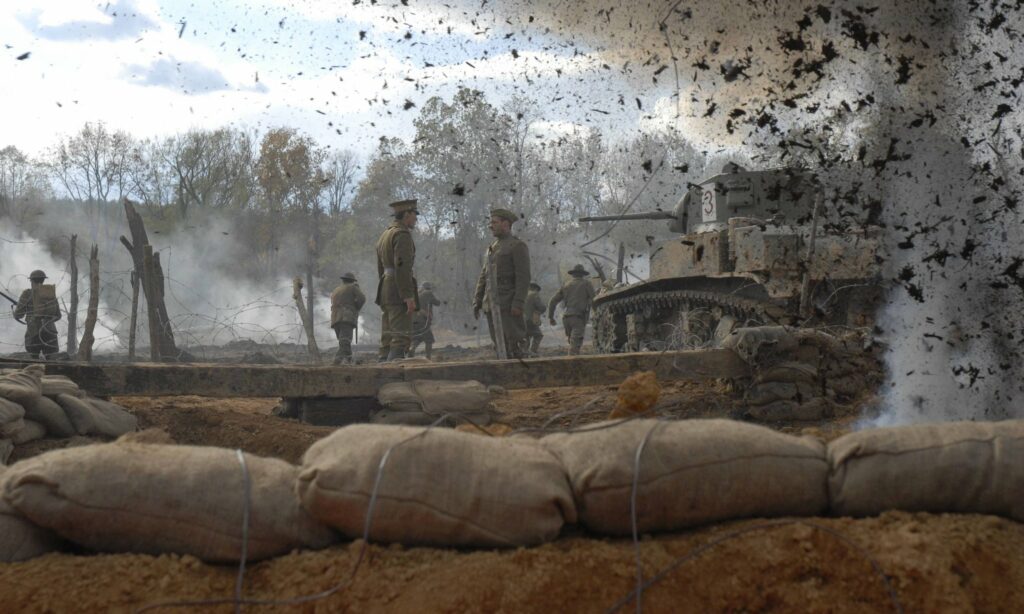The outbreak of World Wars I and II left an indelible mark on human history, causing immense suffering and devastation. However, there are strategies that can be employed to prevent such catastrophic conflicts from occurring in the future. Let’s explore some effective ways to stop the world wars and promote lasting peace.
Diplomatic Negotiations and Conflict Resolution
Diplomatic negotiations and conflict resolution are crucial tools for preventing armed conflicts from escalating into full-scale wars. Diplomacy involves dialogue, negotiation, and mediation between conflicting parties to reach mutually acceptable agreements and settlements. By engaging in constructive dialogue and seeking common ground, nations can resolve disputes peacefully and avoid resorting to military force. International organizations such as the United Nations play a vital role in facilitating diplomatic efforts and promoting peaceful resolutions to conflicts through diplomacy and mediation.
Strengthening International Alliances and Cooperation
Strengthening international alliances and cooperation is essential for fostering peace and stability on a global scale. By forging alliances and building partnerships with other nations, countries can deter aggression, promote mutual defense, and collaborate on shared security challenges. Multilateral agreements and treaties, such as arms control agreements and non-proliferation treaties, help to reduce tensions, build trust, and prevent the spread of weapons of mass destruction. Additionally, international cooperation in areas such as trade, development, and environmental protection fosters interdependence and mutual prosperity, reducing the likelihood of conflicts arising from economic disparities or resource scarcity.

Promoting Democracy, Human Rights, and Social Justice
Promoting democracy, human rights, and social justice is fundamental to preventing the root causes of war and conflict. Democracies are less likely to engage in armed conflict with one another, as they are governed by transparent and accountable institutions, respect the rule of law, and uphold the rights and freedoms of their citizens. By promoting democratic governance, protecting human rights, and addressing socioeconomic inequalities, nations can create more inclusive and equitable societies where grievances are addressed through peaceful means rather than violence. Investing in education, healthcare, and economic development also helps to empower individuals and communities, reducing the likelihood of resorting to violence as a means of addressing grievances.
Disarmament and Arms Control
Disarmament and arms control initiatives are essential for reducing the risk of armed conflict and promoting international security. By limiting the proliferation of weapons and reducing military arsenals, nations can build trust, enhance transparency, and create a more stable and secure global environment. Arms control agreements, such as nuclear arms reduction treaties and conventional weapons agreements, help to prevent the spread of dangerous weapons and mitigate the risk of accidental or intentional use. Additionally, confidence-building measures, such as military-to-military dialogues and transparency measures, promote communication and cooperation between rival states, reducing the likelihood of misunderstandings or miscalculations that could lead to conflict.
Investing in Conflict Prevention and Peacebuilding
Investing in conflict prevention and peacebuilding efforts is crucial for addressing the root causes of war and instability. By addressing underlying grievances, promoting reconciliation, and building resilient and inclusive societies, nations can prevent conflicts from erupting and promote sustainable peace. Conflict prevention strategies focus on early warning and early response mechanisms, mediation and dialogue, and addressing the structural drivers of conflict such as poverty, inequality, and corruption. Peacebuilding efforts involve supporting post-conflict reconstruction and reconciliation, strengthening institutions, and fostering social cohesion and trust among communities. By investing in conflict prevention and peacebuilding, nations can break the cycle of violence and build a more peaceful and prosperous world for future generations.
In conclusion, stopping the world wars requires a concerted effort by nations, international organizations, civil society, and individuals to address the root causes of conflict, promote diplomacy and dialogue, strengthen international cooperation, and invest in conflict prevention and peacebuilding efforts. By working together to address the underlying drivers of war and instability, we can build a more peaceful and secure world for all.

